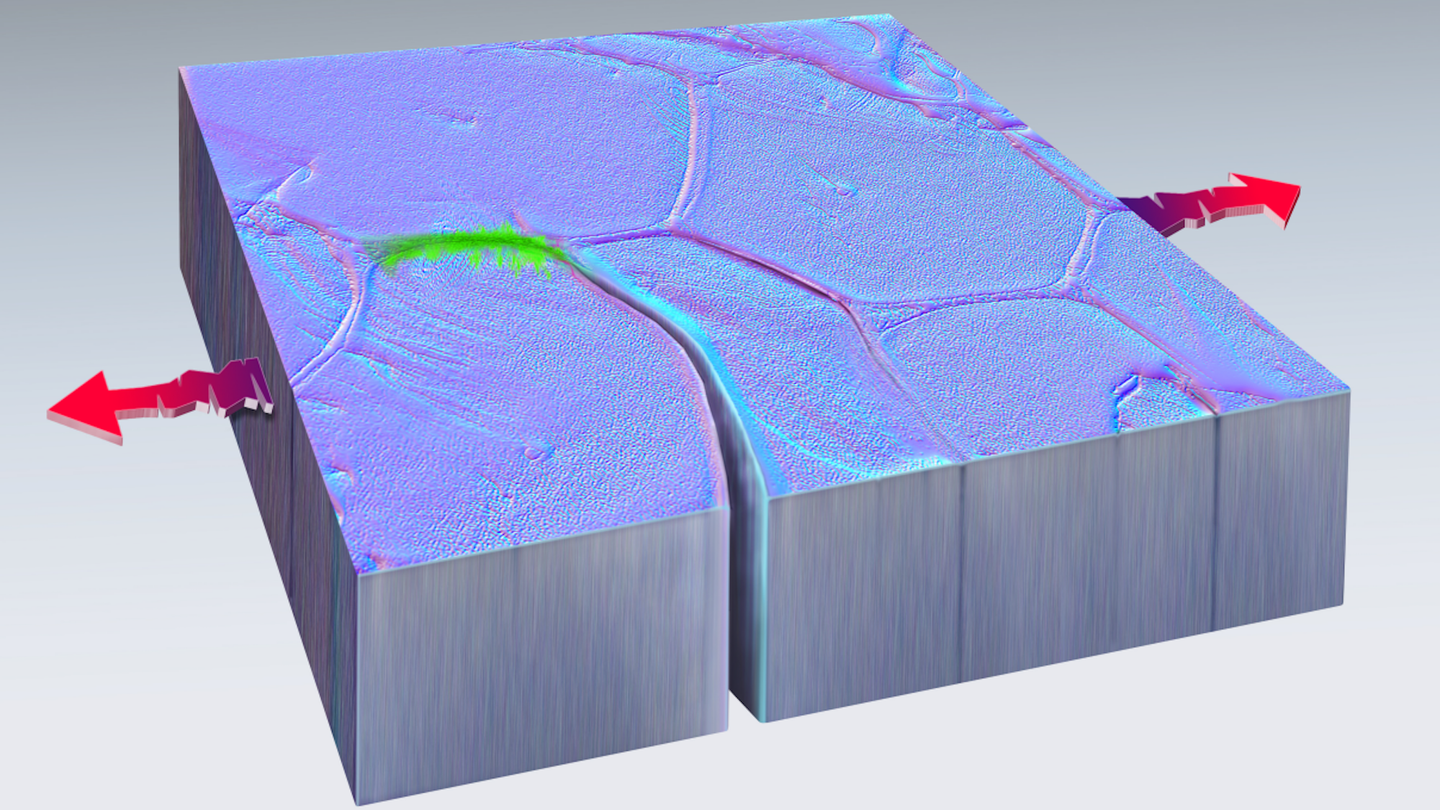Some metals have surprised scientists by showing the ability to heal themselves, which is not something typically seen in metals. Usually, when metals break, they remain broken unless something external fixes them. However, recent research suggests that certain metals, like copper and platinum, can naturally mend on their own, a discovery that could have significant implications for engineering both on Earth and in space.

The discovery came about by accident when materials scientists from Sandia National Laboratories and Texas A&M University were studying copper and platinum at a very tiny scale. They used a special microscope to subject the metals to tiny proddings, similar to a mosquito’s legs walking, at a rate of 200 taps per second. Despite the small amount of pressure, the metals developed small cracks over time.
These kinds of cracks are common daily, leading to failures in structures like electronic devices, vehicle engines, and bridges. The failures result in replacement costs, lost time, and sometimes even injuries or loss of life. However, in this experiment, something remarkable happened—within 40 minutes, both the platinum and copper samples healed as if the cracks were never there.
This ability to heal contradicts what scientists previously thought about metals. Cracks were expected to grow larger, not smaller. The healing process was contrary to basic equations describing crack growth. The discovery confirmed a theory proposed a decade ago by Michael Demkowicz, a materials sciences and engineering professor at MIT. His computer simulations suggested that, under certain conditions, metals could hypothetically mend stress-induced cracks. The key to this ability lies in “cold welding,” where the sides of two cracks press into each other under specific conditions.
Although much more research is needed to understand this phenomenon fully, the implications could be significant. It might change how engineers design and construct buildings, vehicles, and other structures. The experiments were conducted in a vacuum, but scientists hope to determine if metal cold welding could occur in normal atmospheric conditions.
In any case, this discovery serves as a reminder that materials can behave unexpectedly under the right circumstances. As scientists continue to explore and understand these properties, we may unlock even more remarkable abilities in various materials.
Leave a Reply